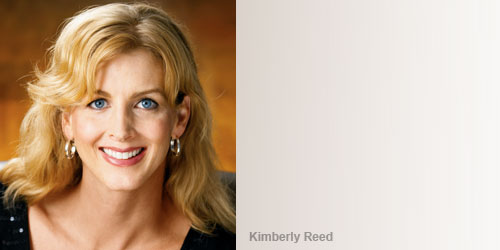By Dan Woog

Growing up in Montana's Big Sky Country, Kimberly Reed was told that anything could happen there. And it did.
Her younger brother Todd came out as gay. Her other brother Marc – adopted as an infant – had part of his brain removed following a bad accident, and still suffers bouts of fearsome anger and violence. While searching for his biological parents, he learned he was the grandson of Orson Welles and Rita Hayworth.
As for Kimberly Reed herself: Through high school, she was Paul McKerrow. He was class president, valedictorian – and captain of the football team.
The story has all the makings of a truth-is-stranger-than-fiction movie. Which is exactly what Reed – a filmmaker – has produced.
"Prodigal Sons" – her yearlong look into family dynamics that makes the Royal Tenenbaums seem like the Brady Bunch – opened last month in limited release. It airs on the Sundance Channel in June.
As an 86-minute documentary, it may not receive widespread exposure. But as a vivid example of the power of biology, chemistry, geography and fate to shape lives, it is worth seeking out.
The device that anchors the film – Reed's return to Helena for her 20th high school reunion – sounds trite, almost laughable. It turns out to be the perfect vehicle for a remarkable journey.
Reed expertly weaves still photos and videos of her childhood and youth; interviews with Helena High classmates, family members and friends, plus her own narration. Shots of Montana's boundless vistas reinforce the idea that life unfolds in a sprawling way – one that is impossible to comprehend with only a glance.
Too much happens in "Prodigal Sons," which was produced by Big Sky Film Productions, Inc, to recount here. Suffice it to say that the film Reed ended up with is not the one she imagined when she began. As she and Marc confront their pasts – he is still trapped in a brotherly rivalry she long ago abandoned – she realizes that it is not Marc who thirsts for an identity, but herself.
The film is ultimately not about a family grappling with sexuality, adoption, family, sports, Hollywood, growing up or going home. In the end, Reed said, it is "quite simply about love, and how one family faces challenges and triumphs that no one would ever have imagined."
Last month, days before the film's release, Reed discussed the project. "With non-fiction documentaries, the challenge usually is to increase the drama," she said. "With this, we had the opposite problem. We had lots of dramatic hand grenades. We had to figure out how to throw them without blowing everything up. We had to stick to everyone's humanity."
When Reed was Paul, she said, being a football star was "an icon." "Everyone knows what 'high school quarterback' means. We didn't have to dwell on that."
Video of games are used in the documentary as "symbolic images of who I used to be," Reed said. "I'm haunted by these images."
When people hear "jock," they think "straight dude," Reed added. "When I transitioned, I stopped being athletic at all. I had always conflated athletics with maleness, with a particular sexual and/or gender identity."
Now, she said, she has gotten back into athletics and exercise, particularly swimming and yoga. "Hopefully, I've found a way to be both athletic and feminine."
One of the film's surprises is the easy acceptance of her former teammates. "Montana is a surprising place," she explained. "Montanans are very independent. They like to make up their own minds about things."
On camera, a football co-captain calmly tells Kim about the changes that have occurred over 20 years: "We're all fat, bald and old. And you're a girl."
Her football team, she said, was "a really cool group of guys. I got lucky." One of the lightest moments – in a film that is, for the most part, deadly serious – comes when Tim, Paul's best friend in high school, recounts a bad driving experience from those years. Back then, Tim jokes, "I didn't know she was a woman driver!"
At film festivals in the U.S. – where it has won numerous awards – and as far away as Finland and Estonia, viewers have the same consistent, positive reactions, Reed said.
Yet as instructive as the film is for audiences, its effect on the filmmaker herself is equally powerful. "I started out believing this film was about Marc's quest for identity," she said. "But it was about my own.
"I thought my transition was complete. Instead Marc taught me I was only halfway there, and that I had to somehow resurrect the first half of my life I had buried alive. This freed me to return home and reclaim my past."
Paul McKerrow no longer throws game-winning touchdown passes. But this may be Kimberly Reed's most important victory of all.










